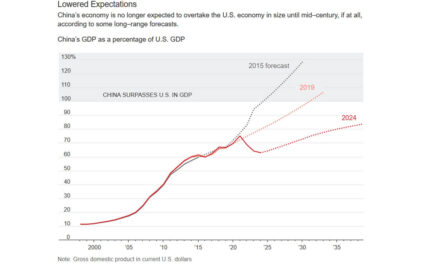
A Critique of the Clinton Economic Plan – Part 3 – 'Manufacturing'
This is the third of a four part analysis of some sections of Hillary Clinton’s economic plan. Again, since the plan on her web site consists of basic planks and little in the way of funding estimates, we will evaluate according to economic philosophies and precepts. See Part 1 here. See Part 2 here.
The third group is called “Manufacturing.”
Strengthen American manufacturing through a $10 billion investment in “Make it in America” partnerships that bring together workers and labor, business, universities, community colleges, and government at every level to harness the strength of manufacturing communities across America. Businesses that take part will pledge not to shift jobs or profits from these partnerships overseas. And we will support strong “Buy American” standards so we make things here.
$10 Billion is a drop in the bucket compared to the $2 trillion U.S. manufacturing sector. This cannot have an practical effect, and will likely be sucked up by second rate manufacturers who are struggling to survive. Similar to Obama’s investment in renewable energy, the government will subsidize companies about to go out of business. And then they will.
If you are a business owner or CEO you don’t want “partnerships,” you want favorable business conditions and minimal regulation. Having unions, universities and government involved in your business is almost never a good thing, most business leaders avoid this as much as possible.
“Buy America” in propaganda form will not sway business owners who have to meet payroll and satisfy shareholders. Penalties against moving overseas may work for a while, until businesses find a way around it and any possible implemenation will have unpleasant unintended consequenses. The ones who take the pledge wil be the ones who have no plans to move overseas anyway. Remember, businesses are smarter than government.
Of course, since Hillary has never run a business, she understands none of this.
Prevent countries like China from abusing global trade rules and reject trade agreements that don’t meet high standards. Hillary will strengthen American trade enforcement so we stand up to foreign countries that aren’t playing by the rules–like China is doing right now with steel—and fight for American workers. She will say no to trade deals, like the Trans-Pacific Partnership, that do not meet her high standard of raising wages, creating good-paying jobs, and enhancing our national security.
Hillary was Secretary of State for four years and helped to make the Trans-Pacific Partnership agreement a reality. Here is a video of her referring to it during her tenure. Now she is against it.
Is she saying she made a mistake? Is she saying Barack Obama and John Kerry are idiots who don’t know what they are doing?
Mrs. Clinton has zero credibility here. She had four years in the formative stages of the TPP to correct the rules that she says are so unfair, and yet she didn’t. While most people now are saying TPP needs to be renegotiated, Mrs. Clinton failed the first time and will likely be unable to do better with the followup. In the Obama administration with both Hillary and John Kerry, the trend has been to fail badly during negotiations and then declare victory.
Revitalize the hardest-hit manufacturing communities by creating tax incentives to encourage investment in communities that have faced or are about to face significant manufacturing job losses.
Tax incentives can work if they are properly done. However I believe the level of funding (if this is part of the $10 billion) isn’t sufficient to make a difference. Investing in communities doesn’t impress manufacturers much, especially if manufacturers are looking for plant sites world wide.
Also hate to say it, but by the time you are ready to “revitalize” the “hardest-hit” communities they are likely too far gone. The hardest workers will have moved on to where the more lucrative work is located, and those remaining will be disillusioned. Disillusioned communities are rarely hungry for new opportunities and difficult to form into an enthusiastic work force.
Better to start from scratch in a hard working comunity, like Honda did with Marysville, Ohio back in the 1982, and Toyota in Georgetown, Kentucky in 1988. Detroit will never rise to its former manufacturing glory.
Crack down on companies that ship jobs and earnings overseas and create incentives for companies to bring back jobs to the U.S.
As we mentioned in Part 1, the only way to implement this without putting U.S. companies at a major disadvantage is to severely tax all imports in manufacturing sectors you want to protect. This is a hugely difficult thing to do without destroying all international trade relationships and setting America up for severe inflation as prices are driven up.
This is called “protectionism” and has a great many repercussions.
In my opinion, Mrs. Clinton has no idea how to implement or its possible ramifications.
Invest in America’s manufacturing workforce to ensure that it will always be the best in the world. Hillary will expand apprenticeships and training so our manufacturing workforce is always the best in the world.
Mrs. Clinton has already stated she wants to have free college education for everyone. As I have stated before, this will likely lower standards in our educational system. There is no such thing as a “one size fits all” manufacturing training course.
Will trade training be free? Who would opt to pay for training in a trade, if a four year college degree is free? Or should we descend into full socialism and let the government decide who goes to college and who is not eligible?
Many tradesmen will hesitate to take on apprentices in the traditional sense if the environment is competitive. Who wants to create competition? Apprenticeship is well entrenched in Switzerland, Germany and Austria, she may find a template there.
This may however have some effect. If programs end up being a government subsidy program customized to certain manufacturing sectors, it could provide incentives for those manufacturers to stay, at least for the near term. The danger is in the longer term, it may be considered an entitlement. In the natural socialist progression, these programs will expanding beyond reason, and decrease the incentive to be efficient.
Editor’s note: In case you are wondering about his qualifications, the author is a business owner who earned a Master’s Degree in Engineering from University of Louisville and a Master’s degree in International Transactions from George Mason University, and who traveled to 30 countries with the Central Intelligence Agency.

























"I guess Dempsey favors putting bounties on heads of State. That has gone so well for us in the past.…
All shit. No bull. The only thing dangerous about you is the smell. You probably wouldn’t make it a week…
Joe Gilbertson: where are you going with these threats? My free speech is facing intimidation, sometimes physical threats. Is this…
NOT BUSTED. You didn't have to say it. That is what I meant in the above post from me. But…
Just another ruse for taking jabs at Biden through alleged short comings of his. Ten days remaining in Biden's term…